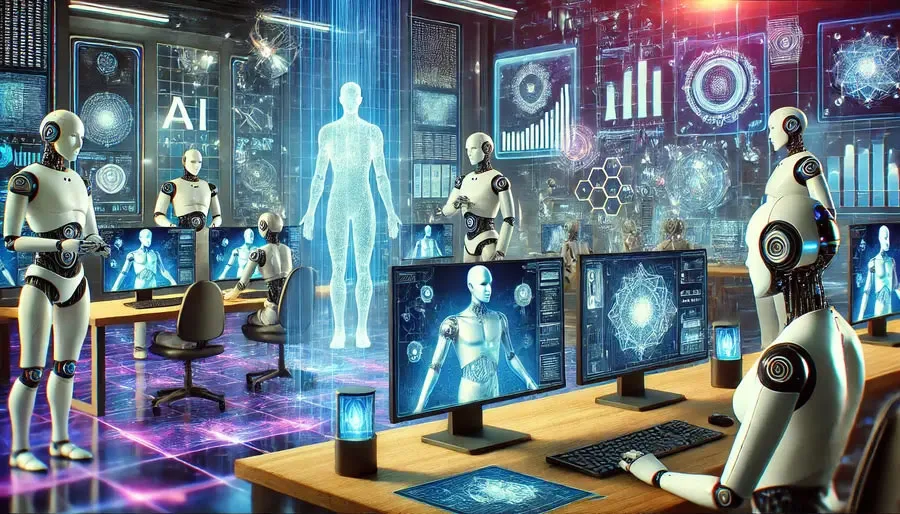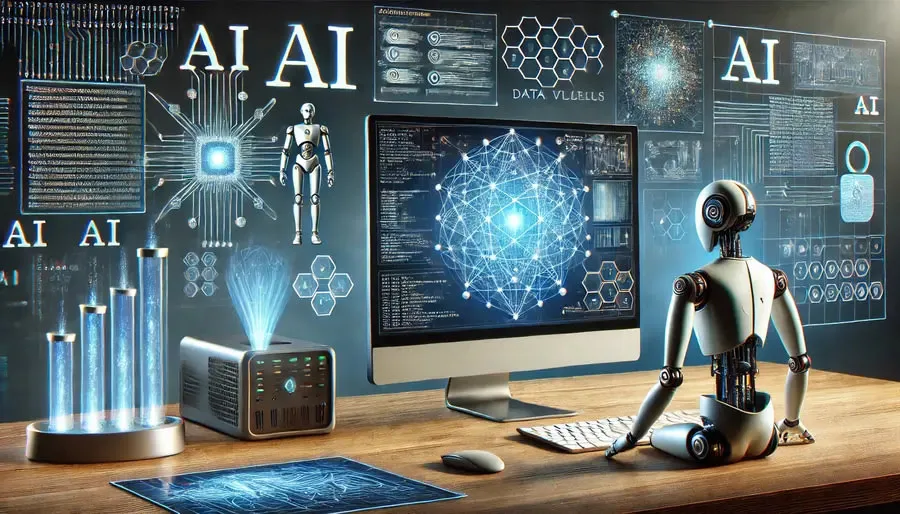
The Future of Artificial Intelligence: The Role of Computers in the Development of AI
Artificial Intelligence (AI) has emerged as one of the most transformative technologies of the 21st century. As AI continues to evolve, it is increasingly shaping various aspects of our daily lives, from healthcare and transportation to entertainment and finance. This article explores the current state of AI technologies, the critical role of computers in advancing AI, and predictions for its future, alongside the ethical and social implications of its development.
Current Technologies and Advances in AI
AI technology has progressed remarkably over the past few decades. Today’s AI systems can perform tasks that were once considered purely the domain of human intelligence, such as understanding natural language, recognizing images, and making complex decisions. Key advances in AI include:
- Machine Learning (ML): Algorithms that improve automatically through experience. Techniques like supervised learning, unsupervised learning, and reinforcement learning have become the backbone of many AI applications.
- Natural Language Processing (NLP): This enables machines to understand and interact with human language, facilitating developments like virtual assistants (e.g., Siri, Alexa), automated customer service, and sophisticated translation services.
- Computer Vision: AI systems capable of interpreting and understanding visual information from the world, driving innovations in areas such as facial recognition, autonomous vehicles, and medical imaging.
The Role of Computers in the Development of AI
Computers have been indispensable in the evolution and growth of AI. Here’s how:
- Processing Power: Modern AI relies on vast amounts of data and complex computations. High-performance computing (HPC) and graphics processing units (GPUs) provide the necessary computational power to train and run sophisticated AI models. This hardware acceleration has made it possible to develop more advanced and efficient AI systems.
- Data Storage and Management: AI requires large datasets for training models. Advances in cloud computing and data management technologies have made it easier to store, process, and analyze massive datasets, which are crucial for AI development.
- Algorithm Development: The development and refinement of AI algorithms depend on computers to simulate and test different approaches rapidly. This iterative process of algorithm development has been greatly enhanced by the computational capabilities of modern computers.
For instance, companies like Platin Casino leverage advanced AI algorithms to enhance user experience. The use of AI in online casinos, such as Platin Casino no deposit bonus, illustrates how AI can personalize gaming experiences, ensuring fairness and improving customer engagement through intelligent systems.

Predictions for the Future of AI
The future of AI holds enormous potential and promise. Several key trends and predictions for the future of AI include:
- General AI: While current AI systems are specialized for specific tasks, the development of General AI, capable of performing any intellectual task that a human can do, remains a significant long-term goal.
- AI Integration: AI will become more deeply integrated into everyday technologies and systems, from smart homes and cities to personalized healthcare and autonomous transportation.
- AI and Creativity: AI will play a significant role in creative fields such as art, music, and literature, generating new forms of creative expression and collaboration between humans and machines.
Ethics and Social Aspects of AI Development
As AI continues to grow in capability and influence, it brings with it significant ethical and social considerations:
- Bias and Fairness: AI systems must be designed and trained to avoid bias, ensuring they are fair and equitable in their decision-making processes.
- Privacy and Security: The widespread use of AI involves collecting and processing vast amounts of personal data. Ensuring the privacy and security of this data is paramount.
- Job Displacement: While AI can enhance productivity and create new job opportunities, it also poses the risk of displacing certain jobs, necessitating strategies for workforce adaptation and reskilling.
AI is poised to continue its trajectory of rapid advancement, driven by the ongoing improvements in computer technologies. The integration of AI into various sectors promises to bring significant benefits, but also requires careful consideration of the ethical and social impacts. As we look to the future, it is essential to balance innovation with responsibility, ensuring that AI development benefits all of humanity.
